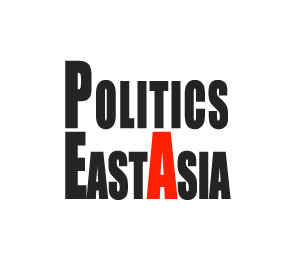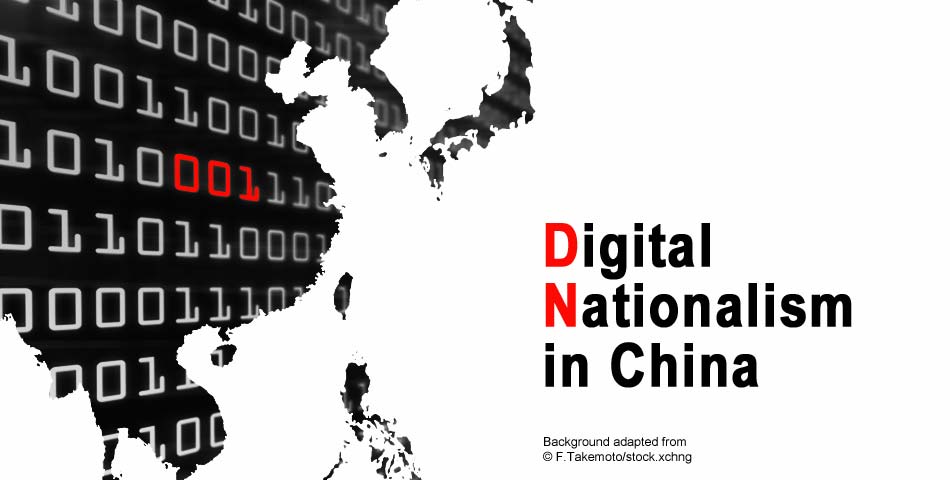Introduction to Digital Nationalism
We live in the information age: affordable multi-media computers, broadband Internet access, and advanced mobile communication tools are changing political, social, and economic practices around the globe. These developments have also swept the People’s Republic of China, new geopolitical superpower and now the second-largest economy in the world, with a population of 1.3 billion. By the end of 2011, China had more Internet users than Western Europe had citizens. What are new information and communication technologies (ICTs) doing to China – and, what is China doing to new ICTs?
Communication scholars often interpret ICTs as harbingers of a cosmopolitan age where the flow of diverse information will educate and empower users. The Chinese case defies these expectations. While communication in digital China is certainly diversifying, the information age has not ended authoritarian one-party rule, nor has it led to the peaceful, pluralist digital public sphere that liberal scholars have envisioned. Two observations in particular challenge what we may call the liberal, cosmopolitan vision of ICTs. First, the Chinese Communist Party and the government successfully use sophisticated censorship and propaganda mechanisms to steer public opinion towards officially sanctioned discourse. This strategy appears to strengthen rather than weaken the Chinese state. Second, online political discourse in digital China turns out to be clustered around a small number of recurring themes, and the most notable of these is nationalism.
A central topic within (online) Chinese nationalist discourse is that of Sino-Japanese history, extending to the present day. Japan’s 2005 bid for a seat on the UN Security Council, for instance, incited rage in Chinese online forums, with activists organizing protests that started on-screen but went on to spill into the streets. Digital Nationalism will investigate the dynamics behind such nationalist sentiment through two case studies. It will examine (1) stable, long-term networks on the Nanjing Massacre of 1937, and (2) currently emerging, short-term networks on the ongoing Diaoyu/Senkaku Islands dispute. Combining quantitative and qualitative methods, it will address this central research question: How do networked actors use ICTs to shape nationalist discourse in China, vis-à-vis Japan as foreign Other?
Digital Nationalism takes current theories of political communication and ICT that implicitly or explicitly claim global applicability, and confronts them with the realities of the world’s largest national web, which happens to be subject to highly effective control by the state. It critically re-examines the liberating, cosmopolitan potential of the Internet, by exploring how ICTs can become vehicles for nationalism in the service of various actors – from dissident netizens to state-employed chat-room moderators and webpage designers – and how such actors construct a sense of community at the expense of diversity and intercultural tolerance.
Digital Nationalism will make a critical contribution to our understanding of nationalism in the information age, and of public discourse in an emerging Great Power. More broadly, it shows how the humanities and area studies are essential to understanding contemporary issues in a “glocalizing” world, as complex as they are urgent. With the introduction of ICTs, states around the globe devise new, often culturally distinct strategies of managing their societies, which go beyond legislation and increasingly focus on shaping ideas and values. For academics, policy makers, civil servants, and educators, sensitivity to these practices is crucial in and of itself; and particularly so in an age when non-Western states challenge Western ways of conducting world politics.
This research project is generously funded by the Netherlands Organisation for Scientific Research.
Share This Post, Choose Your Platform!
12 Comments
Comments are closed.



Great website and an absolutely fascinating project.
I’ve always wanted to do a systematic discourse analysis on mainstream mass comment threads and Weibo posts on the SCS and Diaoyu (such as those seen on South Sea Conversations, plus a few hundred more). Having realized that is a second Phd project, however, that’s gone on the back burner.
Looking forward to the results of this project!
Thanks Andrew,
Yes, this will be a big project. Am currently working my way through websites on the Nanjing Massacre. Diaoyu to follow after that. I hope to have an update later this year. Will make sure to keep you in the loop.
And do make sure to let me know how your project progresses. Fascinating work on the South China Sea – arguably one of the most complex issues in international politics today. Major HT for tackling that topic in such a nuanced way.
[…] I have been busy with research in China. However, while I have been working on my project on Sino-Japanese history in Chinese online networks, I have also been collecting examples from the most recent propaganda campaign that the Chinese […]
Prof. Schneider,
I’m sitting right on your right and I have to say you have given a great lecture in the 4th international conference on multicultural discourses.
the lecture about the digital naionalism of China impressed me a lot for you open a new perspective, combining digiatl and nationalimsm together to study the political discourse between China and Japan.
and the depth of your insght over Sino-Janpan issues has been perfectly illustrated in your speech.
thanks for your speech By the way, Can i say that you are too handsome to be a professor~~~
Thanks Jane, glad you enjoyed the presentation. I’ll have to see what the final results shape up to be, but it’s good to know that the first part of the study is already getting positive feedback.
[…] how crucial digital media and digital methods are to my own work, I want to take the opportunity to look at some of the criticism that has accompanied the digital […]
[…] the major sources of information are large websites run by officially accredited organizations. In my own research, I am currently mapping networks of websites that deal with nationalist issues, and it turns out […]
Hi, Prof Schneider.
Have you got your result in shape?
I am really interested in your project. I am doing similar thesis right now.
Looking forward to hearing from you.
Sincerely,
Tuvshinbat
Dear Tuvshinbat,
Thanks for your interest! The project runs until 2016, so I’ll be busy writing up results next year. I also hope to have articles out in the near future, but they are still under peer-review, so this may take a while. One piece will be coming out in January 2015, with Asiascape: Digital Asia. It’s not on nationalism as such, but on the digital methods the project uses. If you are interested, you can get access to the article for free if you sign up to the journal here: http://www.brill.com/products/journal/asiascape.
All the best
FS
[…] from my own research on Digital Nationalism in China and China’s media system, as well as from some of the work that my colleagues and I have […]
[…] Netherlands Organization for Scientific Research (NWO), through a VENI grant for the project ‘Digital Nationalism in China’ (grant 016.134.054). The article is part of the 2015 special issue of Asiascape: Digital Asia […]
[…] Netherlands Organization for Scientific Research (NWO), through a VENI grant for the project ‘Digital Nationalism in China’ (grant […]